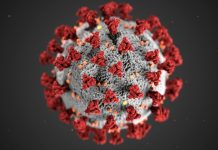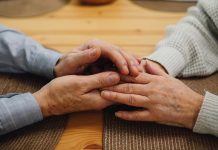The chances of surviving a heart attack are pretty high. According to the American Heart Association, about 90% of patients live to see another day.
However, the trauma associated with the experience will forever haunt them. Heart attack survivors constantly live with the fear that maybe “today will be my last.”
Everyone celebrates your second chance, but they don’t tell you about the emotional toll it takes. It’s a scary thought to know you’ve made it through a life-changing event only to realize you’re living on borrowed time.
Dread. Confusion. Apprehension. These are normal emotions, but how do you process them? You’ve survived a heart attack. Now comes the hard part: not living in fear.
Below, we’ll help you navigate recovery, one step at a time.
Manage Your Medications
Your cardiologist will discuss a treatment plan with you. These will include medications and lifestyle changes.
Some meds can greatly lower the risks of another cardiac event. You must understand what each medication is for and when to take it.
If your physician intends to monitor you during the first 90 days of recovery, they may suggest a remote patient monitoring platform to observe your progress remotely. This form of patient care management allows for patient engagement and improved clinical outcomes.
Remote patient monitoring (RPM) is a recent innovation that allows healthcare organizations to track patient health data using apps, connected devices, and other digital tools.
This means your doctor can check in on you from anywhere without you having to see them for a check-up. Thanks to remote patient monitoring software, you can recover in the comfort of your home without the stress of a weekly doctor visit.
Don’t Push Yourself
Cleveland Clinic advises not to do more than you’re physically able to in the first week. Your heart needs time, and so do you.
Bathe and dress every morning like you usually do. Return to light household chores like folding laundry or cooking. Feeling fatigued is normal, so take a break and rest for the remainder of the day.
Follow your doctor’s instructions for bed rest and which activities are off-limits. If your physician tracks your recovery via RPM, they will note the change in your blood pressure and blood glucose levels.
CoachCare says providers can monitor their patients’ health with daily updated data. So, beware, and no cheating!
Recognize Your Feelings
Dubbed ‘The Cardiac Blues’, the rollercoaster of highs and lows following a heart attack can be emotionally draining.
You should worry when those negative emotions become more constant. If you’re feeling down or miserable all the time, the Heart Foundation says you could be suffering from depression. Symptoms include:
- Feeling hopeless, irritable, or frustrated
- Low self-esteem, feeling guilty or worthless
- Loss of interest in things that bring you joy
- Feeling tired, lethargic, or drained
- Difficulty sleeping
- Loss of appetite or weight changes
If you are experiencing these symptoms, you should contact a mental health counselor or a close family member for support.
Practice Gratitude
Greater Good Magazine says that practicing gratitude after a heart attack can support recovery and well-being by shifting focus to the positive and reducing stress.
Simple habits like journaling, gratitude affirmations, and expressing appreciation to others promote a more positive outlook. Jeff Huffman, assistant professor of psychiatry at Harvard Medical School, notes that gratitude can positively influence self-care behaviors.
It encourages you to become more active, quit smoking, eat healthier, and take medications as prescribed. Gratitude often helps patients feel they have been given a second chance, motivating them to make the most of life.
Stop Worrying
Yes, it’s easier said than done. Healthline suggests seeking therapy to help ease your fears.
Even if you think you don’t need help, the best gift you can give yourself is to prioritize your mental well-being. That starts with getting help from a mental health professional.
Find someone who specializes in anxiety disorders; they can offer therapy and strategies tailored to your needs.
Educate yourself about the physical symptoms of stress, anxiety, and panic attacks so you can distinguish them from heart-related issues.
Use relaxation techniques like deep breathing, mindfulness, and progressive muscle relaxation to ease anxiety and relieve physical symptoms.
With guidance from a therapist, you can gradually learn to face the situations that trigger your fears and learn to manage them.
Yes, you have been given a second chance, but that doesn’t mean you should live a life on borrowed time. Follow your doctor’s instructions. Take your meds. Don’t push yourself. Recognize your feelings and know your limits.












































